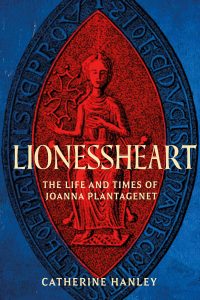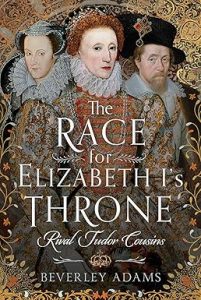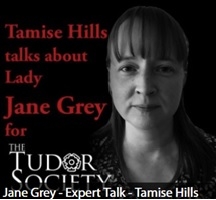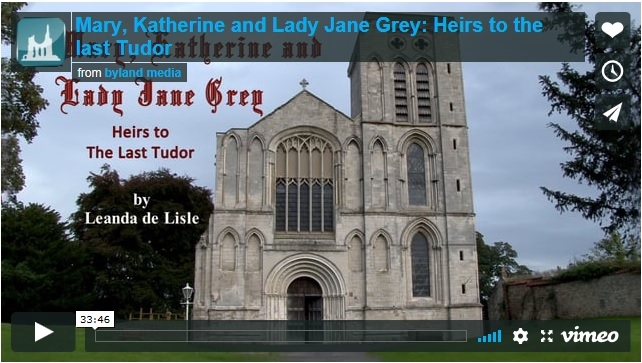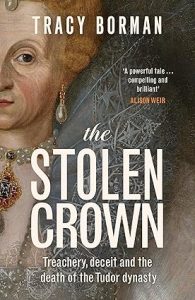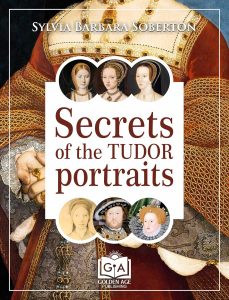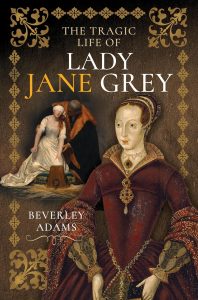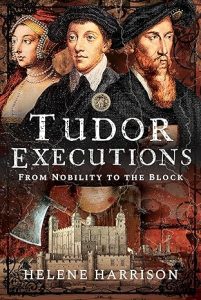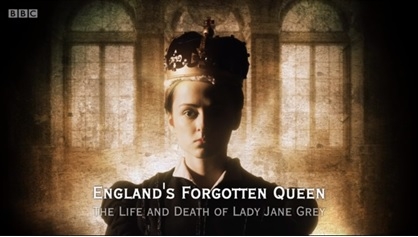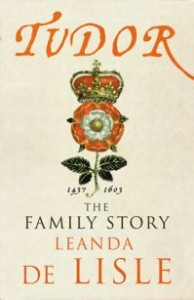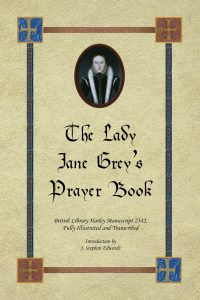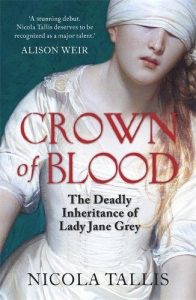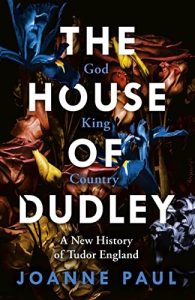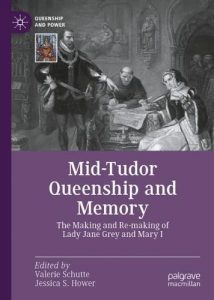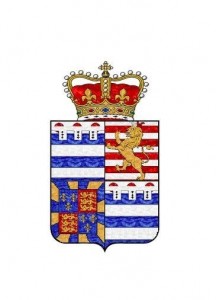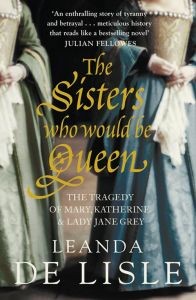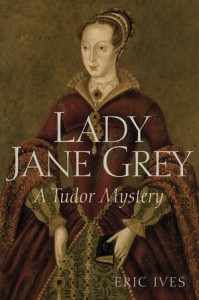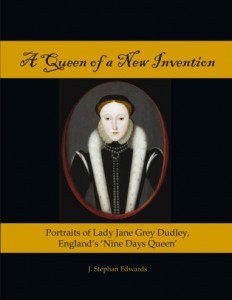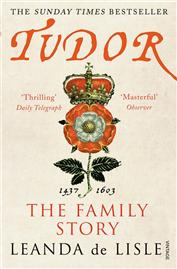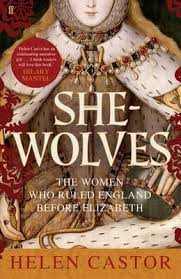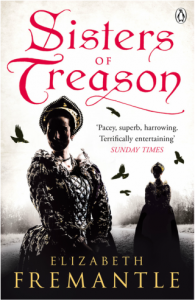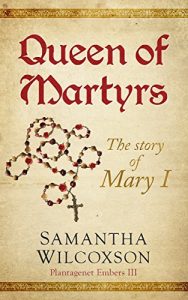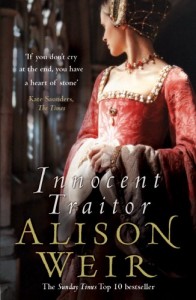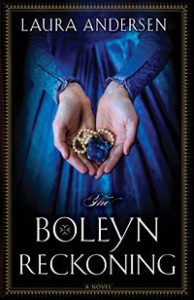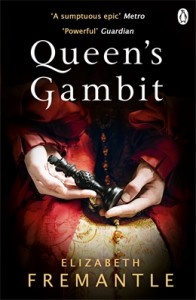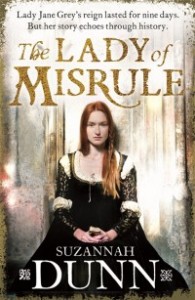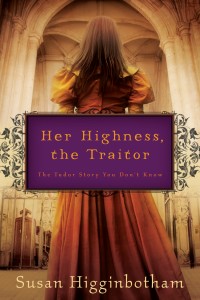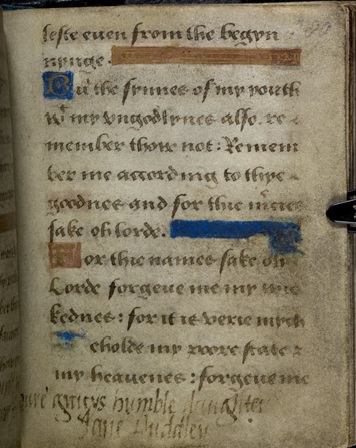‘Although my fault is such that it can only be pardoned by the Queen’s mercy, nor can I ask for reprieve, having listened to those who at a time appeared to me as wise, and now have shown that they were not so, as they were distributing gifts that did not belong to them, and that I should not have accepted; for these reasons I should feel ashamed begging to be pardoned for such a crime. Nevertheless as I now avow my lack of prudence for which I deserve the greatest punishment, failing the mercifulness of the Queen, thus I hope that as my fault is great, making this avowal at least I shall not be accused of crimes in which I have not incurred. Because, although I accepted that of which I was not worth, I never sought it.’ (p.45, Malfatti)
Professor Eric Ives writes ‘A letter of explanation and confession to the queen is the one written appeal from Jane that would have been allowed, the August date is what one would expect, and remarks made by Mary to the imperial ambassador on the 13th indicate that she received such a letter.’ (p.19, Ives)
Two versions of Jane’s letter exist. This is how she recounts the events of 9th July.
Version 1
‘And there, having shortly afterwards fallen ill, the Council sent for me ordering that this same night I should go to Sion to receive that which had been ordered by the King. And she who brought me this news was my sister-in-law Sedine, (Selina) daughter of the said Duke, who told me that I had forcibly to go with her, as I did. But then we arrived we did not find anybody there, but afterwards arrived the Duke of Northumberland, the Marquess of Northampton, the Earl of Arundel, the Earl of Huntingdon, and the Earl of Pembroke, by whom I was entertained a long time, before they did tell me of the death of the King, and especially by the Earls of Huntingdon and Pembroke, who were doing me such homage, not in keeping with my position, kneeling before me, that greatly embarrassed me.
Finally they had my mother coming where I was, together with the Duchess of Northumberland and the Marchioness of Northampton, and the Duke, as President of the Council, made known the death of the King. Subsequently he explained the many reasons that all had to rejoice for the virtuous life he had led, and for the admirable way in which he had met death; furthermore he demonstrated to comfort himself and the by-standers explaining the great care he had shown for his Realm in the last hours of his life, when he had prayed God to defend it from the Popish faith and to free him from his bad sisters. Furthermore his late Majesty had approved by act of Parliament a law by which anybody who would acknowledge My Lady Mary, now most serene Queen, or My Lady Elizabeth as true heirs to the Crown, be guilty of treason, because the one had been undutiful to King Henry VIII, his father, and afterwards also to himself, and especially arch-enemy of God’s word, and both of them illegitimate. Therefore, it had been his will that in no case they could succeed to the Crown and that they were both disinherited, and had ordered the Council before his death, binding it by the duty to himself, its affection to the Kingdom and the love which is due to the fatherland, to obey his will. The Duke added then that I was the heir nominated by his Majesty and that my sisters would succeed me if my issue should fail. By these words all the Lords of the Council knelt before me saying that they were doing me the honour which was due to me, being of straight descent, and that they were anyway to comply with what they had promised even if it had meant to lose their blood and lives. Of how I was overwhelmed hearing these words, may bear witness those who were present, who saw me fall to the ground weeping bitterly, and afterwards avowing my own inadequacy I deeply grieved over the death of such a noble Prince and in the end I turned to God and prayed him that if what was given to me was rightly mine, His Divine Majesty would grant me such grace as to enable me to govern his Kingdom with his approbation and to his glory.’ (p.45, Malfatti)
Version 2
‘I was summoned by the Council, giving me to understand that I must go that same night to Sion to receive that which had been ordered for me by the King. And she who brought me this news was the lady Sidney, my sister- in-law, the daughter of the Duchess of Northumberland, who told me with extraordinary seriousness, that it was necessary for me to go with her, which I did. When we arrived there, we found no one, but soon after came the Duke of Northumberland, the marquis of Northampton, the earl of Arundel, the earl of Huntingdon, and the earl of Pembroke. By which lords I was long held in conversation before they announced to me the death of the King, especially by the earls of Huntingdon and Pembroke, who, with unwonted caresses and pleasantness, did me such reverence as was not at all suitable to my state, kneeling down before me on the ground, and in many other ways, making semblance of honouring me. And acknowledging me as their sovereign lady (so that they made me blush with infinite confusion) at length they brought to me the duchess Frances my mother, the duchess of Northumberland, and the marchioness of Northampton. The duke of Northumberland, as president of the council, announced the death of King Edward, shewing afterward what cause we had all to rejoice for the virtuous and praiseworthy life that he had led, as also for his very good death. Furthermore he pretended to comfort himself and the by-standers, by praising much his prudence and goodness, for the very great care that he had taken of his kingdom at the very close of his life, having prayed God to defend it from the Popish faith, and to deliver it from the rule of his evil sisters. He then said that his Majesty had well weighed an act of Parliament, wherein it was already resolved, that whoever should acknowledge the most serene Mary, that is your most serene Majesty or the Lady Elizabeth, and receive them as true heirs of the crown of England should be had all for traitors, one of them having been formerly disobedient to her father Henry the 8th, and also to him- self, concerning the truth of religion, and afterwards also capital enemies of the Word of God, and both bastards. Wherefore, in no manner did he wish that they should be heirs of him, and of that crown, he being able in every way to disinherit them. And therefore, before his death, he gave order to the council that, for the honour they owed to him, and for the love they bare to the realm, and for the affection that was due to their country, they should obey this his last will. The Duke then added, that I was the heir named by his Majesty, to succeed to the crown, and that my sisters should likewise succeed me, in case of my default of issue. At which words, all the lords of the council kneeled down before me, telling me that they rendered to me the honour that was due to my person, I being of true direct lineage heir to that crown, and that it became them, in the best manner, to observe that which, with deliberate mind, they had promised to the King, even to shed their blood, exposing their own lives to death. Which things as soon as I had heard, with infinite grief of mind, how I was beside myself stupefied and troubled, I will leave it to those lords who were present to testify, who saw me, overcome by sudden and unexpected grief, fall on the ground, weeping very bitterly ; and then, declaring to them my insufficiency, I greatly bewailed myself for the death of so noble a prince, and at the same time, turned myself to God, humbly praying and beseeching him, that if what was given to me was rightly and lawfully mine, his divine Majesty would grant me such grace and spirit that I might govern it to his glory and service, and to the advantage of this realm.’ (p.496-499, Stone)
Sources
Ives, E. (2009) Lady Jane Grey: A Tudor Mystery, Wiley-Blackwell.
Malfatti, C.V. (1956) The Accession Coronation and Marriage of Mary Tudor as related in four manuscripts of the Escorial, Barcelona
Stone, J.M. (1901) The History of Mary I Queen of England, Sands & Co


